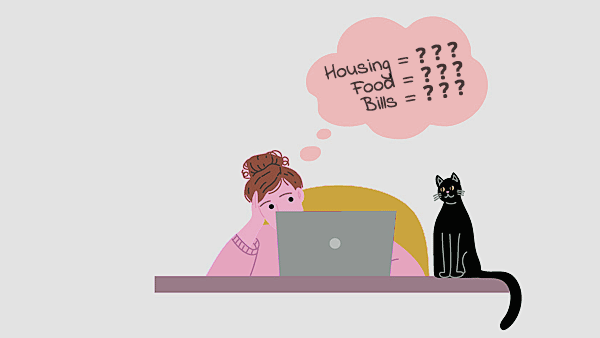The difference between Freiberufler and Gewerbetreibender
Who Am I? It is a question which every teenage angst ridden youngster has asked themselves. Luckily, in Germany, the land of sausages, beer and bureaucracy, the Finanzamt will tell you!
If bureaucracy does not phase you, then becoming self-employed in Germany is fairly easy. (Please note: this article is strictly about self-employment without the formation of a limited liability or incorporated company such as a GmbH or UG).
Let’s get started. There are some intricacies in regard to being self-employed in Germany. A freelancer i.e. ‘Freiberufler’, is not the same as a trader, i.e. ‘Gewerbetreibender’. Both are however, self-employed.
Therefore, before entering the grand halls of the Finanzamt, these are the first questions you should ask yourself:
- What is the business?
- What kind of service am I offering?
- Is the work or service I am providing highly creative, scientific or intellectual?
- Do I need higher education in form of a university degree or special certification to be able to work in this field?
- If the nature of the business is artistic, for example a photographer, then the question is, how much artistic freedom does the photographer have?
If the photographer has predominantly complete artistic freedom, then the photographer is most likely a Freiberufler. Most top Fashion photographers are “Freiberufler”. They get booked because of their “artistic vision”. If however, the photographer, takes pictures based on clients wishes, weddings, portraits of grandma, then the photographer is a Gewerbetreibender.

The Finanzamt will decide if you are a Gewerbetreibender or Freiberufler. Their decision will be based on on what you have added in the field about the business activity in the form called – Fragebogen zur steuerlichen Erfassung.
The main difference between the Gewerbe and Freiberufler status lies in taxation
The Gewerbetreibender will always have to register a business at the Gewerbeamt in addition to the registration at the Finanzamt. This can be done online in most cities and it is not expensive. The form is simply called “Gewerbeanmeldung”.
The Gewerbetreibende has to pay Gewerbesteuer (communal business tax) in addition to income tax. The Freiberufler only pays income tax and is exempt from the Gewerbesteuer.
However, Gewerbesteuer (communal business tax) only applies on profits of 24,500 EUR and more. If profits are below 24,500 EUR, only income tax applies. Financially, the Gewerbesteuer is not a big issue. It is however, an extra bureaucratic annoyance for the self-employed. Not only in terms of taxation but also in tax prepayments and the filing of annual tax returns. You can find the Hebesatz (the communal business rate) of your city on the IHK website. Every city or commune has a different Hebesatz.
On the upside, the difference in total tax paid between the Gewerbetreibenden and Freiberufler is not big. This is because the communal business tax lowers the taxable amount for income tax. Depending on the Hebesatz of the commune or city you have registered your business in, it might actually make no difference at all.
What is certain however is that the Gewerbetreibende has to pay to the IHK (Industrie und Handelskammer). Unfortunately, this is something everyone with a Gewerbe has to do, whether this organisation adds any value to the business or not.
There are no fees for the IHK in the first 3 years of trading if the profits are below 24.000 per year. Afterwards the fees are between 35 EUR and 75 EUR per annum. Not huge, but still a cost nevertheless.
Who is a Freiberufler?
Freiberufler fall into the below professions:
(This list is also available on the website of the Bundesministerium der Justiz und Verbraucherschutz. At the time of writing, this information is available in German language only).
If you are from the UK, “Freiberufler professions” are similar to the “professionals” i.e. lawyers, architects, accountants etc.
- independent scientific, artistic, literary, teaching or educational work
- doctors, dentists, veterinarians
- lawyers, notaries, patent attorneys
- surveyors, engineers, architects
- commercial chemists
- auditors, tax advisors, advisory people and business economists
- physiotherapists
- journalists, photo reporters, interpreters, translators
- pilots
The above professions, are professions for which a university degree, or a state accreditation is required. However, it still can be confusing. A ‘Business Advisor’ could be classified to be a Gewerbetreibender by the Finanzamt, while a ‘Master of Economics, Business Advice’ a Freiberufler! But both could have exactly the same qualifications. So, in some cases it just might be semantics.
Figure out your status before the registration of self-employment
Its best to get professional advice on this from a Steuerberater (Accountant) or Rechtsanwalt (Lawyer) before registering your self-employment at the Finanzamt if the status is not blatantly clear. The “Freiberufler” status often gets questioned by the Finanzamt, and normally and unfortunately, the default option is always Gewerbetreibender.
It can take months for the Finanzamt to decide whether a self-employed person is a Freiberufler or Gewerbetreibender. In some cases, it could even take a year. Their decision can come as a shock. Especially, when one thought of themselves as a Freiberufler. When this happens, everything has to be done retroactively, tax calculations, tax prepayments, IHK payments and the registration of the Gewerbe at the Gewerbeamt. Therefore, if the status is a shade of grey, and the business does not fall exactly into the above groups, then consultation with a lawyer or a tax advisor would be very advisable to avoid unnecessary headache in the future. They could also help filling in the form for you and the cost is, of course, tax deductible!
We hope you find this information useful. Please note, this is information based on our own experience with German bureaucracy and does not constitute professional advice. For professional advise, please visit a Lawyer specialised in tax law (Anwalt für Steuerrecht) or Tax Advisor.









